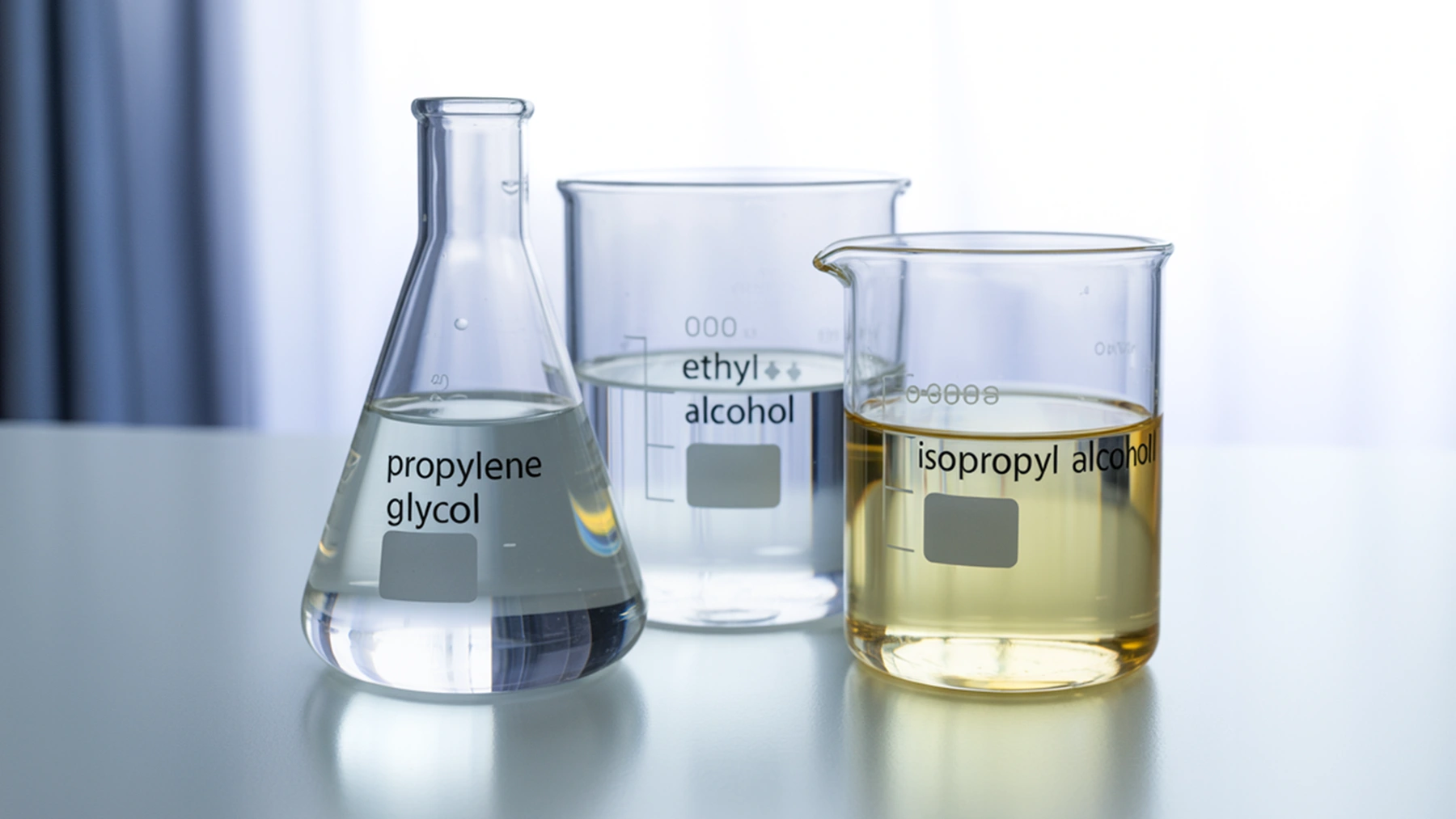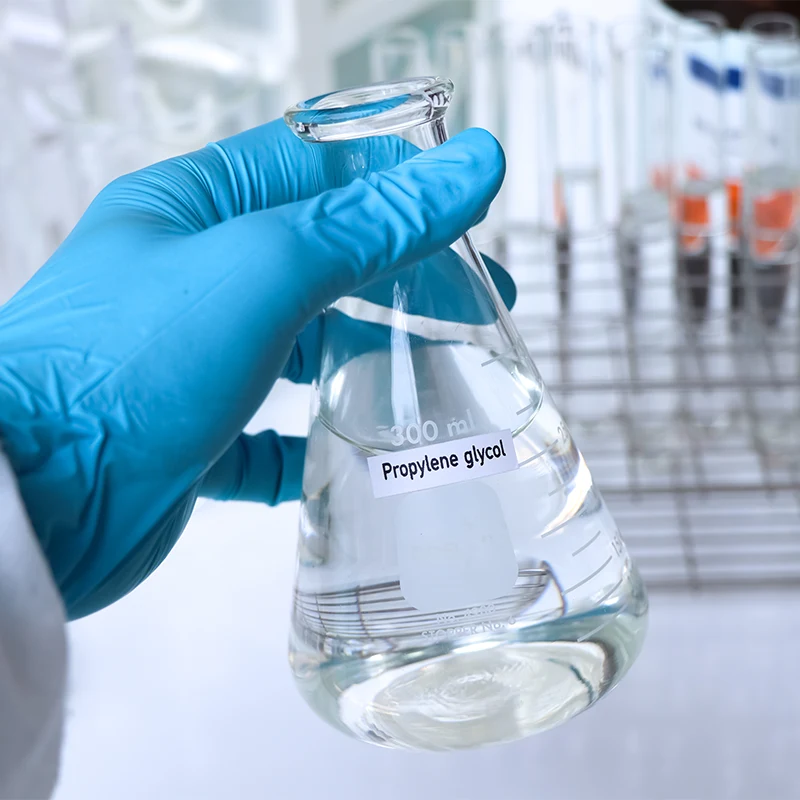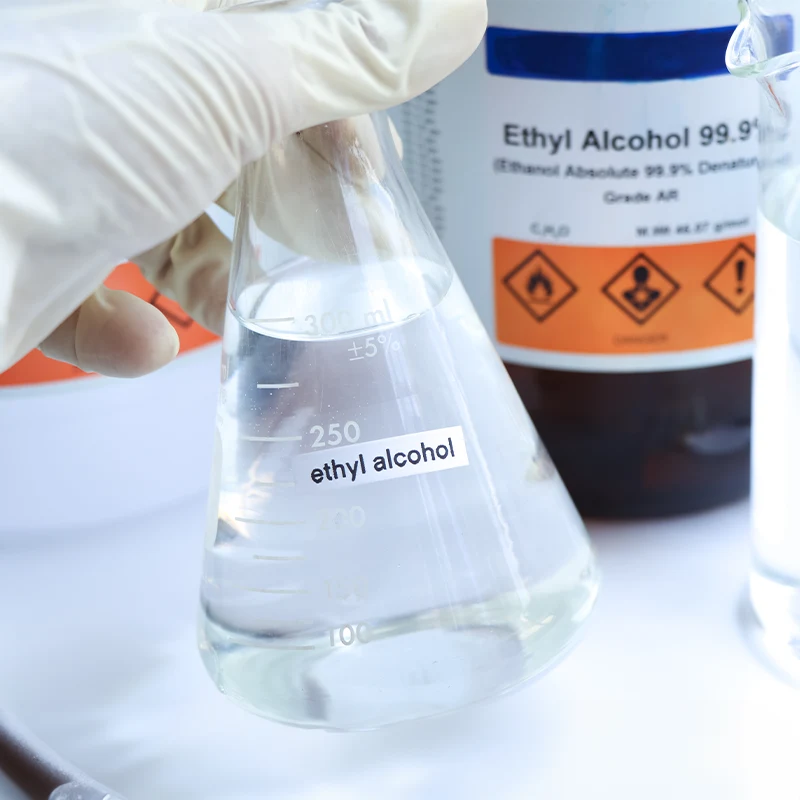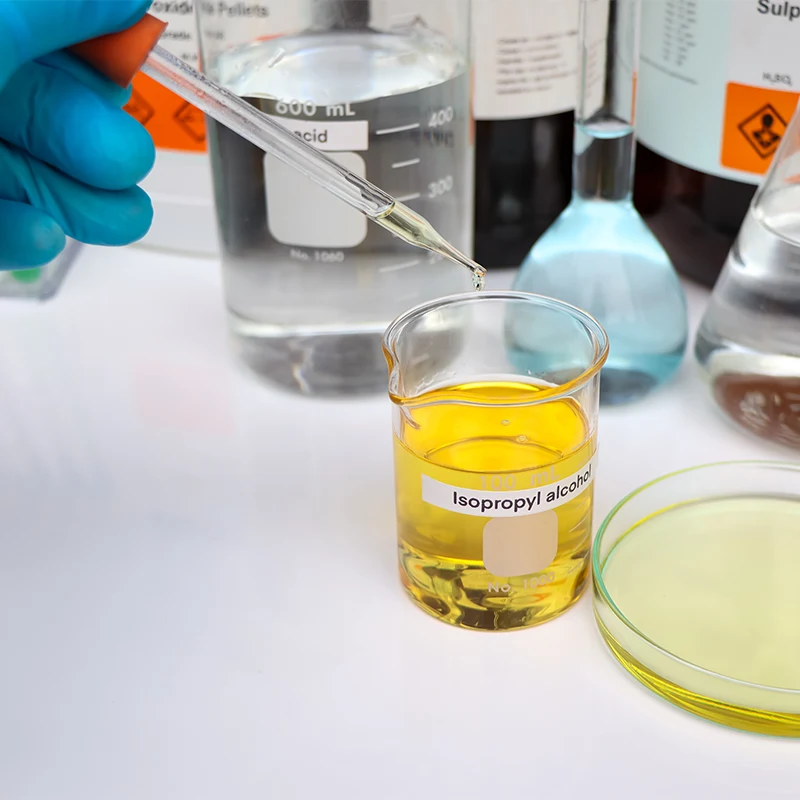
 Table of contents
Table of contents
Here’s what each one actually does and why it matters for natural hair care brands aiming for quality and clarity.
1. Propylene Glycol in Cosmetics

Propylene glycol is a clear, odorless liquid alcohol that easily absorbs water and blends with many solvents. The U.S. Food and Drug Administration (FDA) generally recognizes propylene glycol as safe and non-toxic when used within regulated amounts. Its versatility explains why it appears in more than a quarter of all registered personal care and cosmetic products.
Purpose and Benefits of Propylene Glycol in Formulations
- Humectant: Attracts and retains water, helping skin and hair stay hydrated.
- Solvent & Carrier: Dissolves other substances and helps active ingredients mix evenly throughout a formula.
- Emollient: Creates a thin protective layer that softens skin and reduces water loss, especially useful for treating dryness.
- Viscosity Control: Reduces thickness in creams or lotions, making them easier to spread and quicker to absorb.
- Preservative Support: When combined with other ingredients, it helps extend shelf life by limiting microbial growth.
Why Does Propylene Glycol Matters in Cosmetics?
Because of its hydrating, smoothing, and stabilizing properties, propylene glycol is a common choice in moisturizers, shampoos, conditioners, and serums.
When formulated responsibly, it boosts product performance as well as improves the user experience by creating lightweight, absorbent, and long-lasting products.
2. Ethyl Alcohol (Ethanol) in Cosmetics

Ethyl alcohol is excellent for creating lightweight, fast-drying products. It’s best used in low concentrations, complemented with soothing or moisturizing ingredients.
Why Purity Matters: Ethyl Alcohol 99.5%
Ethyl Alcohol 99.5% is a high-grade, anhydrous ethanol that takes performance a step further. Produced through advanced distillation and dehydration, it contains only trace levels of water, which maximizes solvent power and evaporation efficiency.
Applications of Ethyl Alcohol in Cosmetics
- Preservative Support: Ethyl alcohol helps keep cosmetic products fresh for longer because of its antimicrobial action. By slowing the growth of bacteria and fungi, it contributes to product stability and safety.
- Quick-Drying Agent: Ethyl alcohol evaporates quickly with its low boiling point. This property makes it ideal for deodorants, hair sprays, and lotions where a fast-dry, non-sticky finish is essential.
- Cleansing and Degreasing: Ethyl alcohol can act as a mild cleanser by breaking down oils, sebum, and surface impurities. In skincare, this prepares the skin to better absorb moisturizers or treatments applied afterward.
- Role in Disinfection: In sanitizing gels and antibacterial formulas, ethyl alcohol is a key active ingredient. It reduces harmful microorganisms on the skin, making it indispensable in hygiene products.
Key Benefits of Ethyl Alcohol in Cosmetics
- Improves Formulations: Alcohol improves how well active ingredients penetrate the skin, increasing product effectiveness.
- Antimicrobial Protection: Its antiseptic qualities help extend product shelf life and reduce contamination risks.
- Lightweight Texture: Alcohol contributes to non-greasy, refreshing formulas that feel comfortable on the skin.
- Fast Absorption: Products containing alcohol absorb quickly, leaving behind a cooling sensation and instant freshness.
3. Isopropyl Alcohol in Cosmetics

Isopropyl alcohol, also called propan-2-ol, is a versatile ingredient widely used in cosmetic and personal care products.
Known for its disinfectant and solvent properties, it plays an important role in keeping formulations stable and effective.
Chemically, it is a simple compound (C₃H₈O) produced through industrial synthesis, making it a reliable and consistent ingredient source.
Why Purity Matters: Isopropyl Alcohol 99%
At higher concentrations, such as Isopropyl Alcohol 99% (IPA), this ingredient becomes even more valuable across industries, including cosmetics and pharmaceuticals. Its high purity offers superior disinfection, quick evaporation and safe versatility. Many leading isopropyl alcohol manufacturers in USA supply this grade specifically for safe use in cosmetics and personal care.
Purpose and Benefits of Isopropyl Alcohol in Formulations
In modern cosmetics, isopropyl alcohol serves multiple functions that improve product performance:
- Solvent Power: It dissolves other ingredients and ensures even distribution, leading to uniform textures and improved product stability.
- Light Consistency: It creates lightweight formulas such as lotions, serums, and sprays, that absorb quickly without leaving a sticky residue.
- Antimicrobial Action: By reducing bacterial and fungal growth, it supports product hygiene and prolongs shelf life.
- Hair Care Support: When used in carefully controlled concentrations, isopropyl alcohol can help remove scalp oiliness, leaving hair feeling clean, airy, and full of volume.
- Freshness Effect: Beyond its technical role, it imparts a refreshing, cooling sensation that improves the user experience.
Also, read – What to Look for When Choosing an Isopropyl Alcohol Supplier?
At Natural Cosmetic Labs, we know that modern beauty products need to deliver results without sacrificing gentleness. That’s why we use ingredients like propylene glycol, ethyl alcohol, and isopropyl alcohol in carefully measured amounts, always balanced with naturally derived elements such as glycerin, aloe vera, and nourishing botanical oils. The result is well-rounded formulations that feel light, perform effectively, and remain kind to hair and skin.
For brands interested in private label natural hair care products, choosing the right base ingredients is key.
NCL offers premium-grade options including isopropyl alcohol 99%, ethyl alcohol 99.5% and propylene glycol.
References
https://www.verywellhealth.com/propylene-glycol-5076050
https://essentica.eu/news/about-essentica/the-role-of-ethyl-alcohol-in-the-cosmetics-industry-key-applications-and-benefits
https://sincereskincare.com/ingredients/isopropyl-alcohol/


